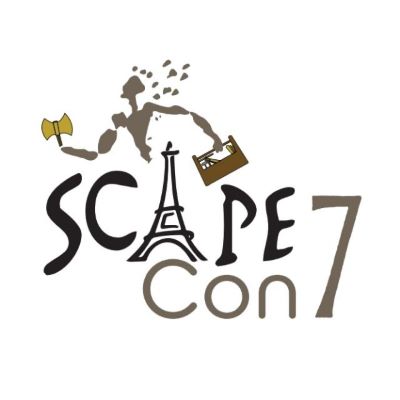|
|
|
Call for papersScapeCon 7th edition 'Techniques Make Perfect': Exploring Crafts and Practices in Aegean Prehistoric Societies INHA, Paris, France 28-29th March 2025 The call for papers is now closed
Keywords : Techniques; Technology; Technical gestures; Technical system; Chaîne opératoire ; Tools ; Bodily techniques.
Aims of the conference: For the 7th edition of ScapeCon, we invite early stage researchers to discuss how the techniques are studied, described and analysed in Aegean archaeology with various theoretical and methodological approaches. PhD students or candidates, scholars who have recently completed their doctoral research, and master students, are welcome to present their research and the ways they perceive and reconstruct techniques through the examination of the archaeological record and the development of new methodological frameworks. In archaeology, the study of material productions is one of the major focuses of research. The definition of a technique – a human operation involved in any transformation of matter – concerns material production which implies several other aspects such as gestures, senses, tools and socio-cultural systems. As highlighted by Marcel Mauss, techniques represent a “total social fact”, permeating individual and collective activities. Accordingly, they serve They serve thus as reliable proxies to understand economic, social and cultural mechanisms as well as to identify communities of practice and cultural interactions. A technological approach, as such, not only (re)constructs knowledge on techniques, but also creates knowledge on multiple aspects of a culture or a social organisation in which these techniques take place, and form or express social relations. Therefore, technology, understood as the scientific discourse on techniques, can be defined as an academic discipline, part of the humanities. One of the biggest changes in the way archaeologists have approached technological studies has been the adoption of the chaîne opératoire concept, i.e. a “way of doing things” inherited by apprenticeship and likely to become a technical tradition. Taking its origins in the work of A. Leroi-Gourhan, this concept became popular in the 1990s and highlights (1) the series of transformation operations from raw materials to finished products and their use, but also (2) how bodies relate to and function in their environment, and how they are mobilised for the activities carried out. This question of how material culture was made is informed as much by technological considerations as well as cultural ones, meaning that the chaîne opératoire approach serves to tackle social and cultural aspects of material culture. It is nowadays adopted for a wide variety of archaeological materials examined through archaeometry, ethnography and experimental archaeology, with the aim to better identify and interpret the technical and social systems through cross-craft interactions and technical transfers. The 7th edition of ScapeCon aims to promote discussion around techniques as they are studied nowadays, including various aspects such as:
The proposed themes focus on the successive stages and sequences of the chaîne opératoire, however it is understood that different technical systems include different chaînes opératoires, and presentations can therefore encompass many or any of these stages. Participants are also invited to consider body techniques, gestures, and the physical implication of the actors in material or immaterial productions. We welcome international early career researchers (Post-doc, PhD, MA) to present their work on techniques in Aegean Prehistory in line with the conference’s aim to showcase recent advancements on this research topic. Presentations may cover various approaches (contextual, material, ethnoarchaeological, experimental) and analytical tools (macroscopic, microscopic, archaeometric, use-wear, etc.). We hereby intend to exchange with early-stage career researchers, and to discuss together on lifestyles and interactions of prehistoric Aegean societies.
How to participate Participation is free of charge but registration is mandatory. The conference will be held in English. Two communication formats are accepted: a 20-minute presentation or a 5-minute presentation, both followed by 10 minutes of questions. In order to participate, please send a short abstract (approx. 250 words) to us using the following e-mail: scapecon7@gmail.com before the 1st of September 2024.
Conference date: 28th-29th of March 2025 Submission deadline: 1st of September 2024. Contact: scapecon7@gmail.com
|


